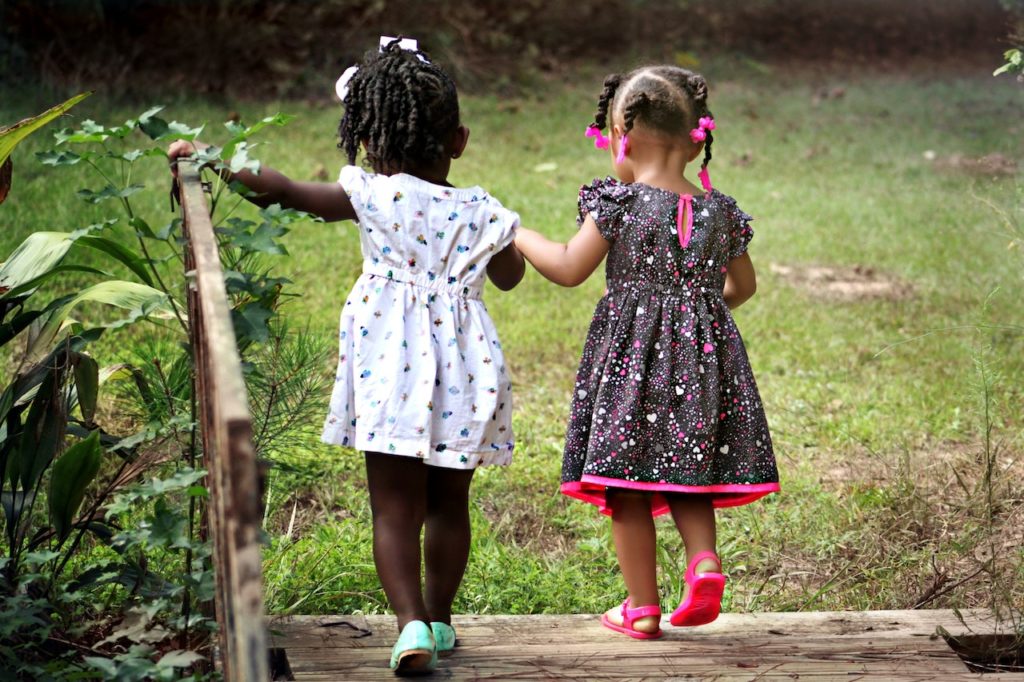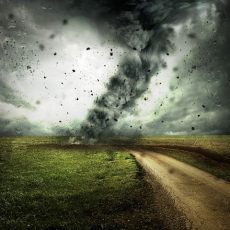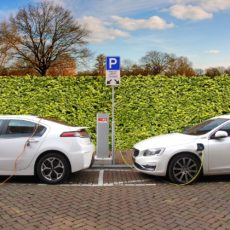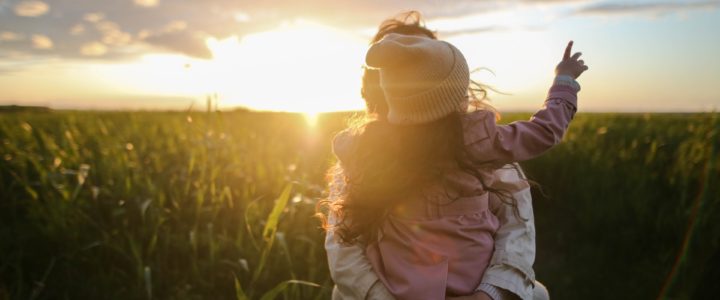
84% of parents think climate change should be taught at school, starting from elementary. But only 45% of parents talk to their children about the subject, according to the same poll, run by NPR/Ispos. This number needs to increase. The climate crisis is here and we owe it to our children to equip them appropriately to manage this fact. It’s not an easy conversation to have, similarly to explaining how the baby got into that lady’s tummy; and why some parents don’t live together any more. Talking to them about this stuff, however, is a necessity. So I’m going to help you navigate how to talk to young kids about the climate crisis. While I’m not a psychologist, I’m the mum of two little people who are 7 and 4, so I’ve spent many hours learning about this and feel I can offer useful insights.
First things first: it’s important to acknowledge that there are children who deal with up close and personal climate change impacts from the day they’re born. For those of us who can consider when and how to have this conversation with our little ones, we are in a place of privilege. So far.
Here are a few tips to help you.
Consider the child’s age and development
This likely goes without saying, but is important to consider. Every child is different. When it comes to The Big Stuff, I can’t approach the same subject in the same way with my two little ones. So not only do we need to think about the age of the child, but also the way they process information. I started using the phrases climate change and global warming from when my eldest was about 3, with very rudimentary explanations of each. This way the terms aren’t shrouded in mystery or taboo. But rather than trying to dive into the science of climate change at this tender age, create a positive link to nature and protection of the environment. Model positive behavior like using reusable grocery bags and starting a compost and talk in simple terms about why these actions are important. Always answer the questions they pose honestly, but don’t go down rabbit holes or on more advanced tangents.
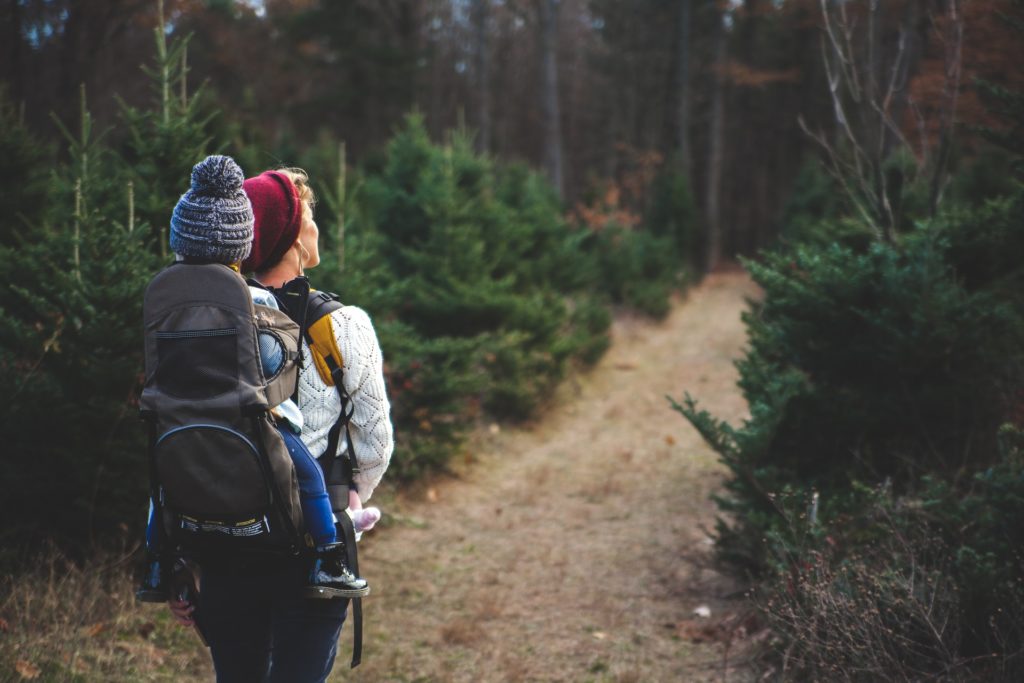
Although the temptation might be to avoid scary stuff like climate change, Psychotherapist Caroline Hickman from the Climate Psychology Alliance suggests that this subject be put in the same category as other difficult subjects, like divorce – it’s because it could be scary that it shouldn’t be avoided. It can help to shape the child’s emotional intelligence and resilience. Leaving the conversation until too much later risks that they’ve been introduced to the topics in an unfriendly, unsupported way, like through throw-away comments in the school playground; or later still, on social media. What they hear in this situations can play heavily on their minds but they won’t necessarily raise the subject with you if they’re already feeling overwhelm or fear.
Stay Positive
Right from the first time you broach the climate crisis, it’s imperative that the child knows the outcome is not fixed. We are not doomed to a sealed fate. We can take action to help change the trajectory of things. The world ‘help’ is particularly important also – we can’t overplay individual responsibility. We must take some accountability, but not all. Equally, it’s not okay to use oft-repeated phrases like ‘the kids will save the planet’….it is quite simply unfair to portray them as the heroes we’ve all been waiting for. They do not need or deserve that pressure.
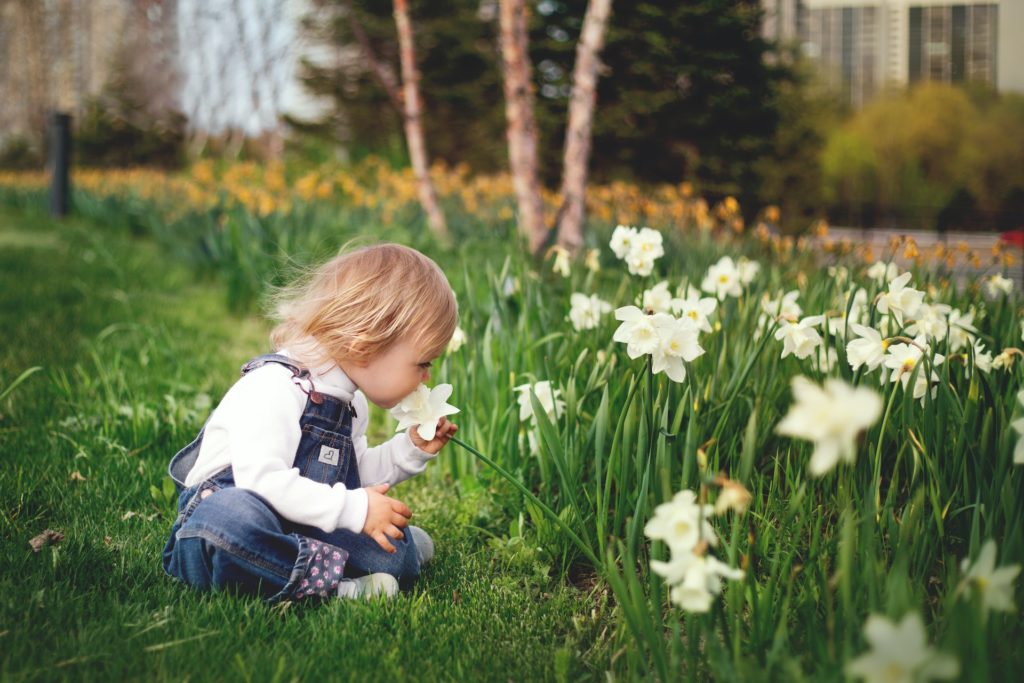
When you’re talking about the actions you model, like using your reusable coffee cup and driving less, make sure you focus on the positive reasons for doing this. Don’t talk in negative language which could illicit fear. Reinforce that you love the extra exercise you get when you’re not driving, that it gives you more time to chat together, and that it’s free to walk or cycle. Composting feeds the earth and the worms and makes the soil healthier so the things we grow and eat are better for us. You can introduce the importance of compost and driving less from the viewpoint of emissions reduction when they’re old enough to have that deeper chat. Getting into nature to observe and appreciate what you see is a great way to frame everything you do through the lens of sustainability and nurturing the planet. The smallest insect to the great blue whale and the sunflower tended by bees…everything on Earth has a place and an important role to play.
Leave your own fear at the door
It’s easy to project your fears onto the children throughout these conversations. But obviously, that’s not fair and should be avoided at all costs. So make sure you’re prepared to have this conversation, don’t jump in when you’re feeling anxious or overwhelmed. Kids are incredibly good at picking up emotional energy, so if they ask something at a time you’re not best placed to answer without emotion, give them a short, basic answer but explain you’ll come back to them with a more thorough explanation. Once you’ve gathered your thoughts and have your mild-medium level panic at bay, you can revisit the question. With that said, you want to give your child the space to have their own feelings about what their learning. Ask open questions and let them explore those feelings. They might be negative, so you need to be ready to support your child. Don’t downplay or belittle. Caroline Hickman suggests that you ask your child to imagine how climate change could affect their favorite animal and speak from their perspective. This will enable the conversation to go towards action which they can take to help ensure this fate doesn’t meet their beloved creature.
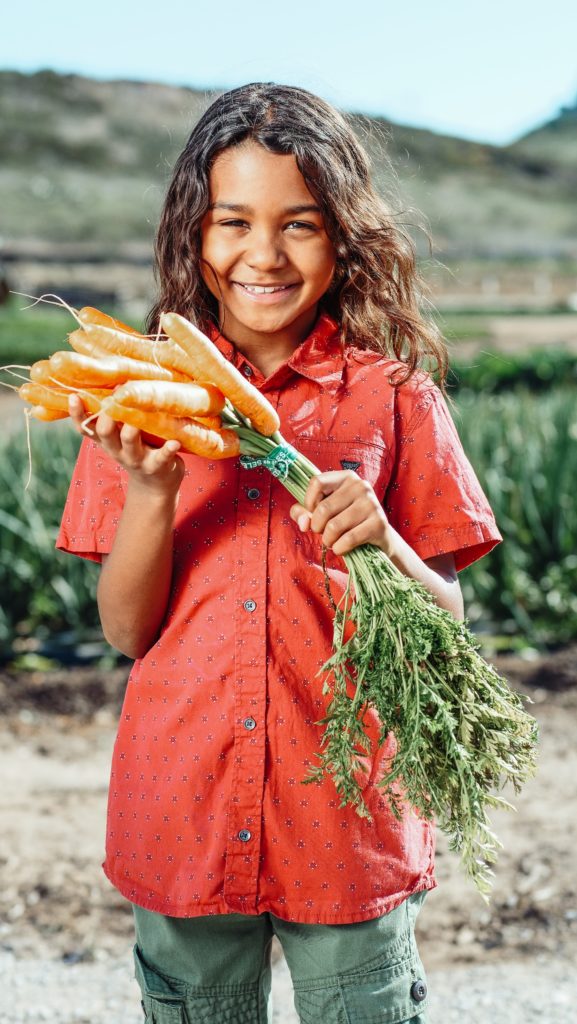
This is also an opportunity to help your child develop an emotional toolkit which will help them through life. John Fraser, a psychologist and President and CEO of Knology, which is “a collective of scientists, writers, and educators dedicated to studying and untangling complex social issues”, suggests that one way to help the child manage anxiety is to find a group activity centered around climate/environmental action. This could be joining a community garden or helping in the school recycling program. This speaks truth to a concept I’ve held for some time, that Action is the Antidote to Anxiety. (I’m referring to feeling anxious about something, not suffering anxiety as a constant state). You could develop a family coping mechanism of stepping outside into nature when one of you are feeling a little overwhelmed – not just by climate, but by anything – taking time to appreciate the complexity, beauty and fragility of the world around us.
Know what you’re talking about
This doesn’t mean you need to have the same level of knowledge as a climate scientist! But you should enter the conversations with a basic level of understanding and then you can expand on this together. There are a plethora of resources available and aimed at children of all ages, like Climate Kids from NASA, National Geographic Kids, Ology, Kids Against Climate Change, Learn Bright on YouTube, with this video, and of course there’s books, starting with The Lorax. You can schedule time to explore these resources together, so any feelings they have throughout can be acknowledged and managed. It’s always better to say you don’t know something when they ask a particularly curly question and then find the answer, rather than pretending and making up something to simply stop the barrage of questions.
No one said being a parent or guardian was easy. But I’m pretty sure no one told me that every year it will actually get harder! But, obviously it also gets more amazing too, with these little people taking me on a journey of love and laughter and lessons! And hopefully I’ve shared some valuable insights and advice here to help you cope with the inevitable conversations and questions about the climate crisis. If you’re after some other tips in terms of modeling behavior, you could check out this previous piece. My main key point: kids need us to be honest with them. They need the adults in their lives help them learn how to develop trust. Sugarcoating is not going to help them as they get older. But sending them into a tailspin of negative energy and anxiety isn’t helpful either! So be honest – and the honest truth is, we have not lost everything yet! It’s all still to play for!
